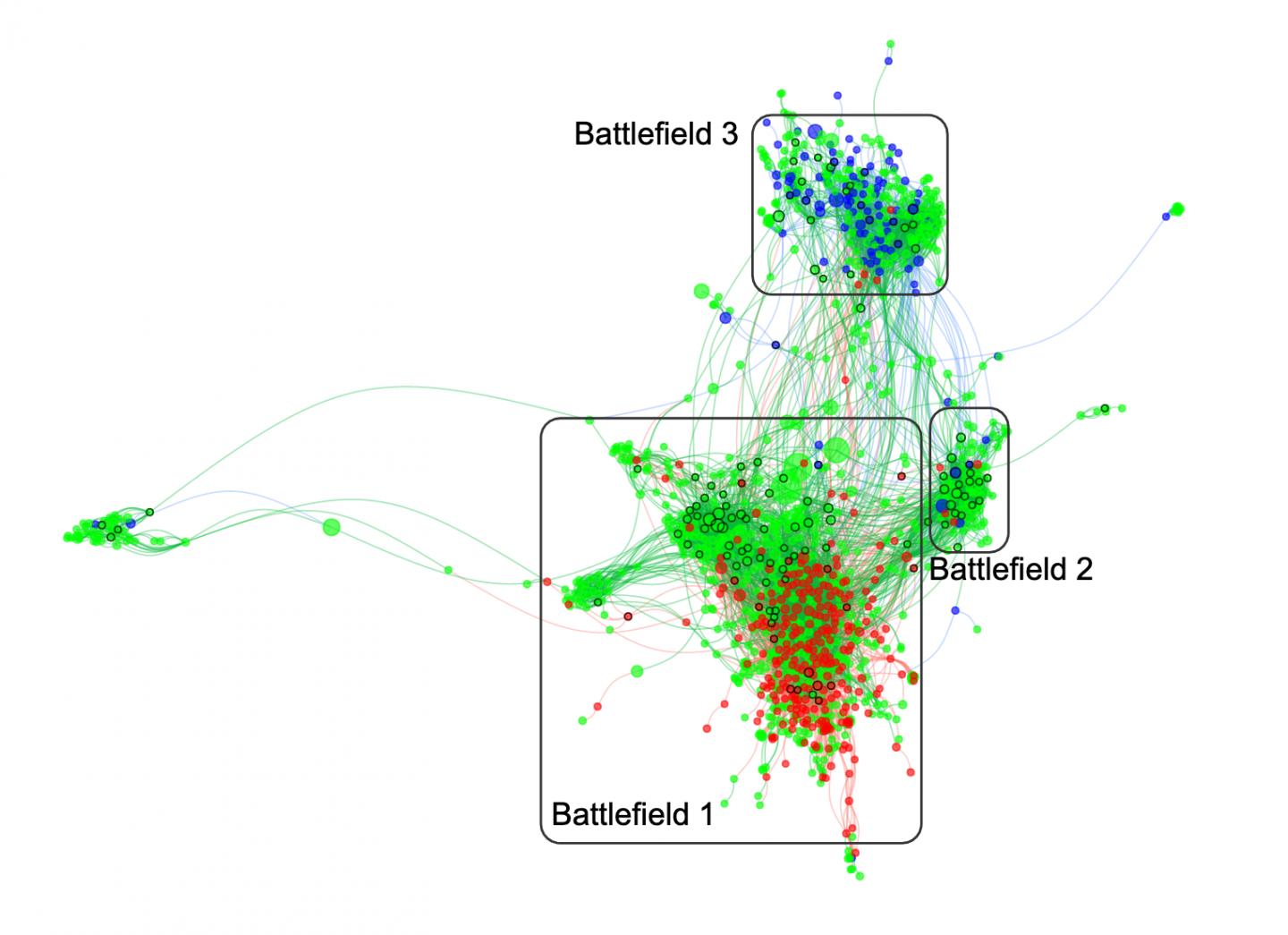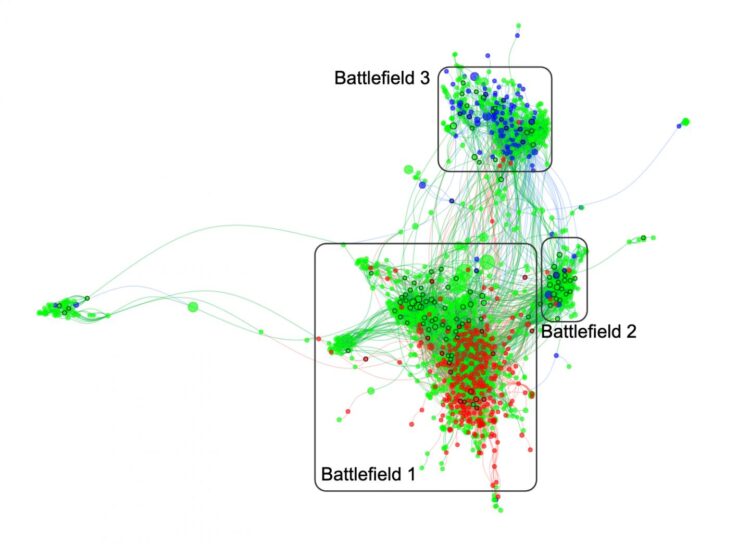Researchers warn scientists are fighting health misinformation in the wrong place

Credit: Neil Johnson
WASHINGTON (May 13, 2020)–Communities on Facebook that distrust establishment health guidance are more effective than government health agencies and other reliable health groups at reaching and engaging “undecided” individuals, according to a study published today in the journal Nature.
Researchers at the George Washington University developed a first-of-its-kind map to track the vaccine conversation among 100 million Facebook users during the height of the 2019 measles outbreak. The new study and its “battleground” map reveal how distrust in establishment health guidance could spread and dominate online conversations over the next decade, potentially jeopardizing public health efforts to protect populations from COVID-19 and future pandemics through vaccinations.
Professor Neil Johnson and his GW research team, including professor Yonatan Lupu and researchers Nicolas Velasquez, Rhys Leahy and Nico Restrepo, collaborated with researchers at the University of Miami, Michigan State University and Los Alamos National Laboratory to better understand how distrust in scientific expertise evolves online, especially related to vaccines.
“There is a new world war online surrounding trust in health expertise and science, particularly with misinformation about COVID-19, but also distrust in big pharmaceuticals and governments,” Dr. Johnson said. “Nobody knew what the field of battle looked like, though, so we set to find out.”
During the 2019 measles outbreak, the research team examined Facebook communities, totaling nearly 100 million users, which were active around the vaccine topic and which formed a highly dynamic, interconnected network across cities, countries, continents and languages. The team identified three camps comprising pro-vaccination communities, anti-vaccination communities and communities of undecided individuals such as parenting groups. Starting with one community, the researchers looked to find a second one that was strongly entangled with the original, and so on, to better understand how they interacted with each other.
They discovered that, while there are fewer individuals with anti-vaccination sentiments on Facebook than with pro-vaccination sentiments, there are nearly three times the number of anti-vaccination communities on Facebook than pro-vaccination communities. This allows anti-vaccination communities to become highly entangled with undecided communities, while pro-vaccination communities remain mostly peripheral. In addition, pro-vaccination communities which focused on countering larger anti-vaccination communities may be missing medium-sized ones growing under the radar.
The researchers also found anti-vaccination communities offer more diverse narratives around vaccines and other established health treatments — promoting safety concerns, conspiracy theories or individual choice, for example — that can appeal to more of Facebook’s approximately 3 billion users, thus increasing the chances of influencing individuals in undecided communities. Pro-vaccination communities, on the other hand, mostly offered monothematic messaging typically focused on the established public health benefits of vaccinations. The GW researchers noted that individuals in these undecided communities, far from being passive bystanders, were actively engaging with vaccine content.
“We thought we would see major public health entities and state-run health departments at the center of this online battle, but we found the opposite. They were fighting off to one side, in the wrong place,” Dr. Johnson said.
As scientists around the world scramble to develop an effective COVID-19 vaccine, the spread of health disinformation and misinformation has important public health implications, especially on social media, which often serves as an amplifier and information equalizer. In their study, the GW researchers proposed several different strategies to fight against online disinformation, including influencing the heterogeneity of individual communities to delay onset and decrease their growth and manipulating the links between communities in order to prevent the spread of negative views.
“Instead of playing whack-a-mole with a global network of communities that consume and produce (mis)information, public health agencies, social media platforms and governments can use a map like ours and an entirely new set of strategies to identify where the largest theaters of online activity are and engage and neutralize those communities peddling in misinformation so harmful to the public,” Dr. Johnson said.
###
Dr. Johnson and Dr. Velasquez are affiliated with the GW Institute for Data, Democracy, and Politics, an institute that launched in 2019 with the support of the Knight Foundation. The institute’s mission is to help the public, journalists and policy makers understand digital media’s influence on public dialogue and opinion, and to develop sound solutions to disinformation and other ills that arise in these spaces.
Media Contact
Timothy Pierce
[email protected]
Related Journal Article
http://dx.





